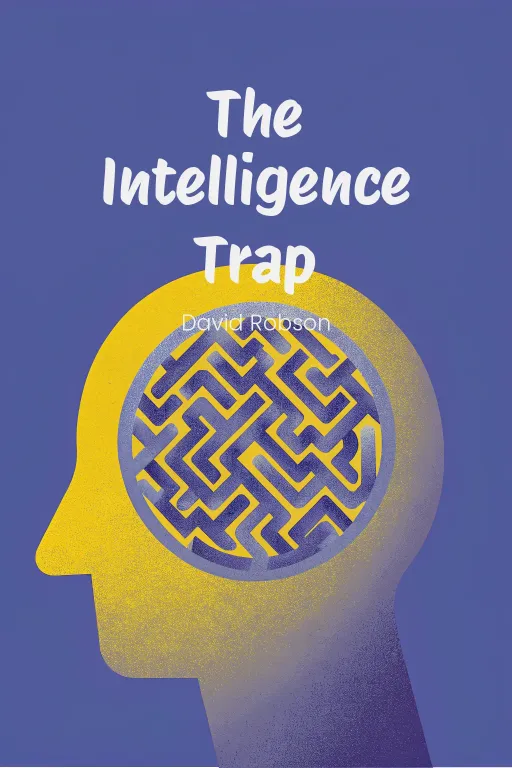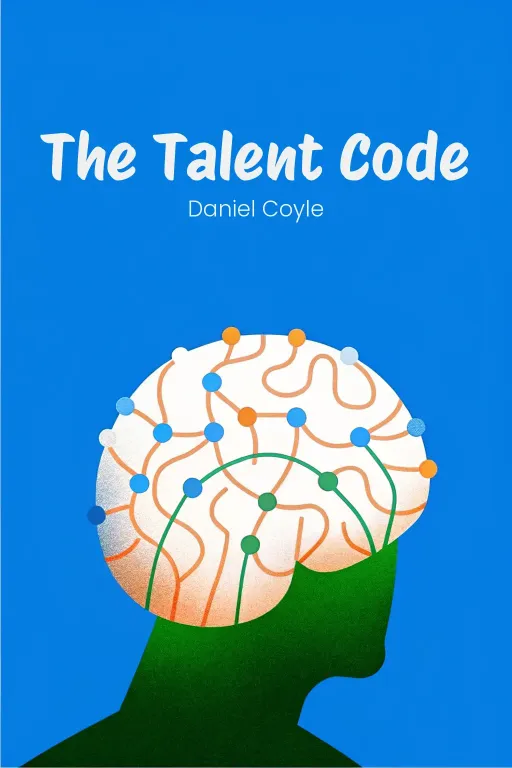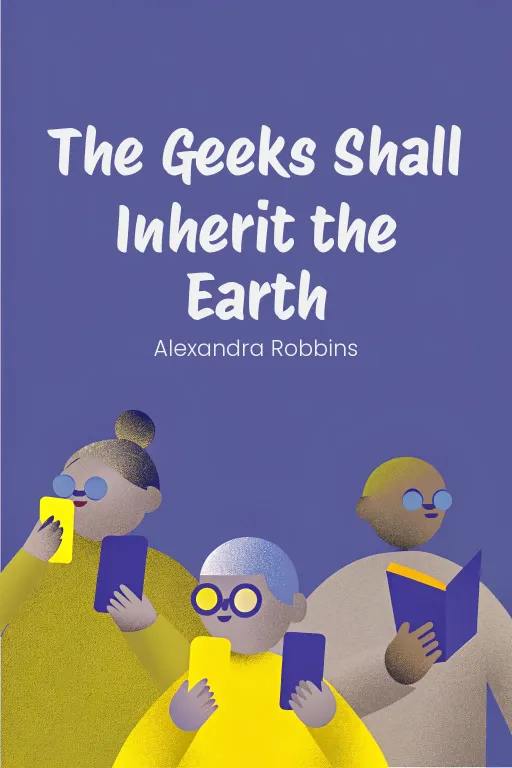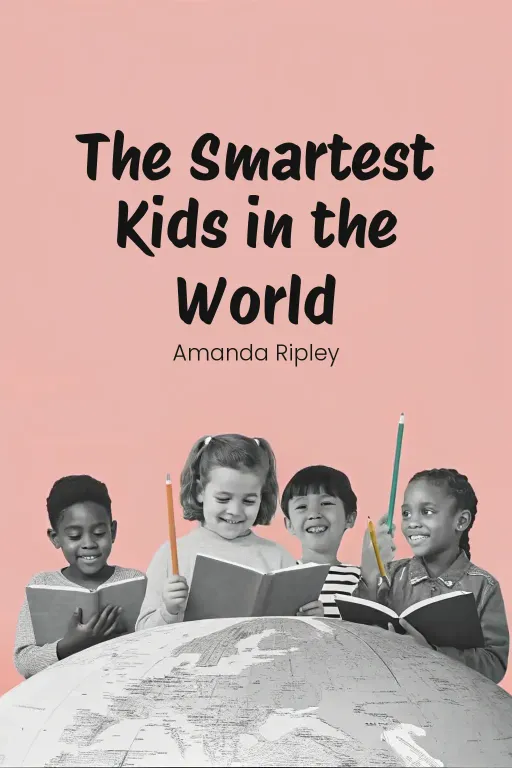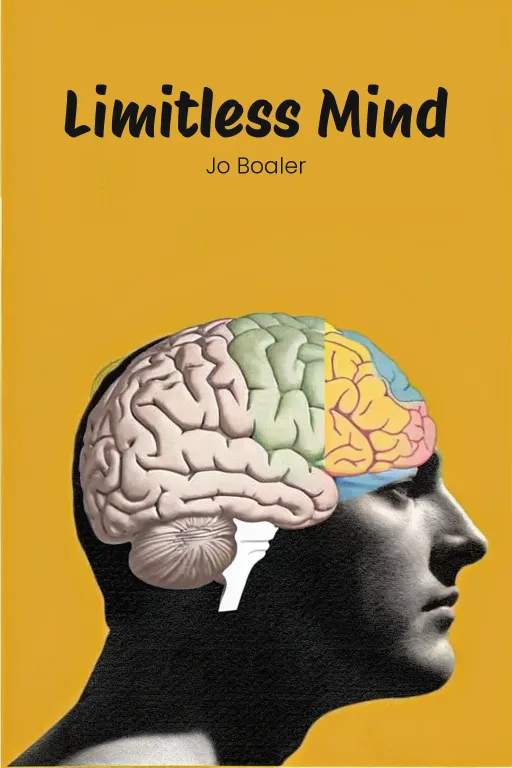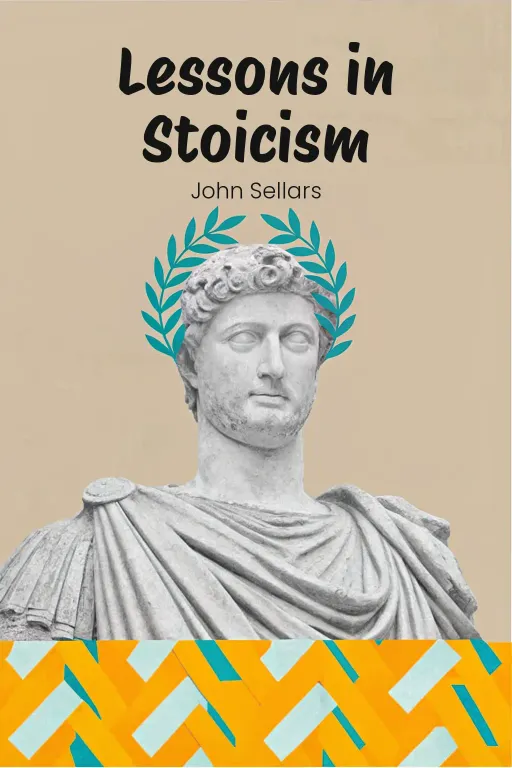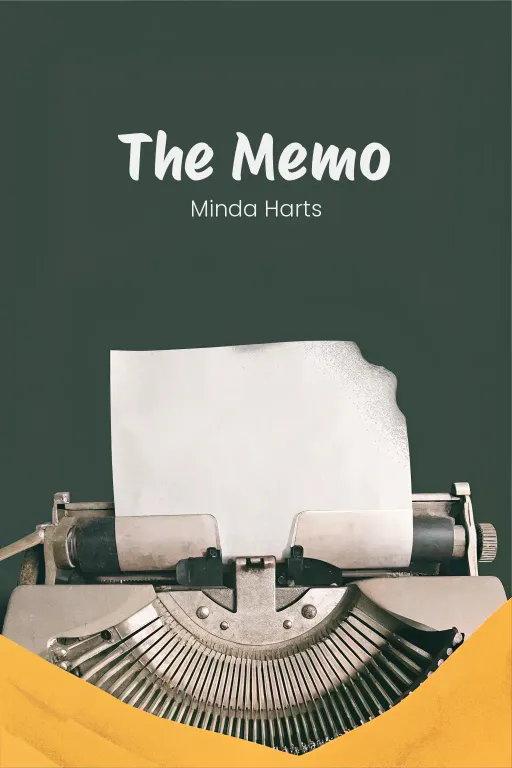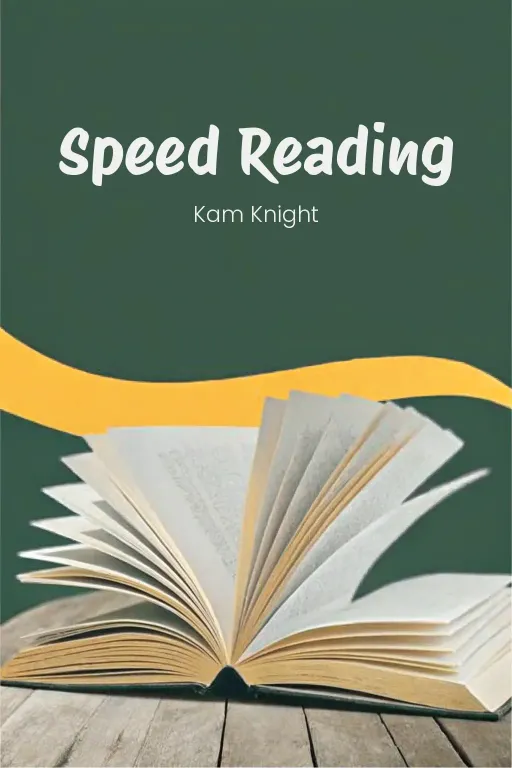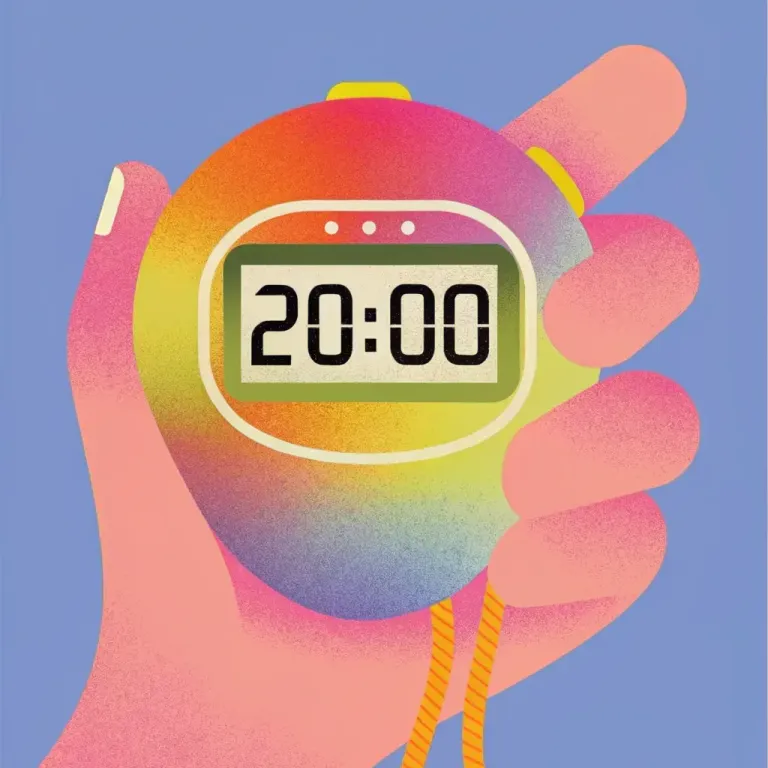
Unlock Skills Fast: The 20-Hour Secret
Podcast by Beta You with Alex and Michelle
How to Learn Anything… Fast
Introduction
Part 1
Alex: Hey everyone, welcome back! Today we're tackling something super interesting: unlocking the secrets to learning a new skill in just 20 hours. Michelle, I’m curious, have you ever just completely given up on learning something new because it seemed way too hard at the start? Michelle: Oh, 100%. Knitting? Forget about it. Juggling? Nope. Even French – I’m pretty sure I hold the record for quickest dropout. Twenty hours? That's barely enough time for me to decide what to learn! Alex: Exactly! Well, Josh Kaufman’s book, “The First 20 Hours,” challenges that whole idea. He focuses on being efficient instead of perfect. He proves you don’t need years – or even months – to pick up some seriously useful skills. His method? Break things down, practice smarter, and, honestly, just get comfortable with being a beginner. Michelle: Okay, so no miracle cure, right? But maybe it's less of a painful grind than we think? I'm listening. Alex: Precisely! So, today we’re going to look at Kaufman’s approach from five different angles. First, we’ll dig into the whole 20-hour rule itself – that initial burst of concentrated effort that gives you a solid foundation. Second, we'll talk about breaking down skills into smaller, more manageable pieces. Think of it like solving a puzzle, one small step at a time. Michelle: Well, that sounds like a direct attack on my usual "go big or go home" approach... which usually ends with me going home. Alex: <Laughs> Right? Third, we're going to talk about removing barriers – both mental and physical – to create space for focused practice. Fourth, we’ll look at how important feedback loops are, and how they can help you improve a lot faster. Michelle: Ah, feedback loops. That's where I picture myself getting grilled by some super patient instructor. Sounds… fun? Alex: And lastly, the best part: actually enjoying the learning process itself. It's about, you know, finding joy in the journey rather than stressing about being perfect. Michelle: So, this is like, hack-your-brain meets learn-anything-faster? I already have a million questions. Alex: Love it. That's exactly what we need as we dive into Kaufman's roadmap for rapid skill acquisition. Let’s get started!
The 20-Hour Rule for Rapid Skill Acquisition
Part 2
Alex: Okay, so let's dive into the heart of Kaufman's idea, which is this 20-hour rule. It's a pretty simple concept, but it can “really” change your perspective. Basically, it says that anyone can get to a decent level of skill in just 20 hours of concentrated practice. We're not talking about becoming a world-class expert here, just getting to a point where you feel comfortable, confident, and, well, satisfied. Michelle: So, not aiming to be Mozart, but good enough to avoid making the neighbors call the cops? Alex: <Laughs> Exactly! Kaufman’s point is “really” about resetting our expectations when we're learning something new. Most people don’t need to be experts; they just need to push past that initial frustration when everything feels impossibly difficult. Once you're functionally competent, a lot of that initial intimidation just melts away. Michelle: That’s a different take from what we're usually told. I mean, the whole Malcolm Gladwell 10,000-hour rule is kind of ingrained in us. And, don't get me wrong, striving for mastery is cool, but who actually has thousands of hours to spare these days? Alex: Exactly, and that's Kaufman's point. The 10,000-hour rule works well in its original context: that's how long it usually takes to become world-class in fields like chess, music, or sports. But Kaufman says most people aren't aiming for—or even needing—mastery. Michelle: Right, I mean, I don’t need to be an Olympic swimmer. I just don’t want to drown while I'm on vacation. Alex: Precisely! Kaufman shifts the focus, saying, “Let’s aim for proficiency, not perfection." And the great thing about this is that it makes learning a new skill way more approachable. You could learn conversational Spanish, play a few songs on the piano, or pick up basic coding—not to become an expert, but to participate and enjoy it. Michelle: I like that a lot. It’s like giving yourself permission to be terrible for a little while, as long as you keep at it. But how does this actually work? I mean, 20 hours sounds too good to be true if we're talking about getting meaningful results. Alex: It's not magic, but it is a “really” structured approach. Kaufman outlines four key steps to get there. The first step is deconstructing the skill, and that means breaking it down into smaller, more manageable pieces. Michelle: Kind of like solving the edges of a Rubik’s Cube first, before you even think about the rest of it? Alex: Exactly! Think about learning the ukulele, like Kaufman did. Instead of getting bogged down in advanced techniques or theory, he focused on just four chords: G, D, Em, and C. Those chords are the foundation for so many songs, so mastering them gave him a huge return for his effort. Michelle: So instead of trying to play some complicated solo or understand the acoustics, he zoomed in on one manageable thing with the biggest impact. That makes sense. Alex: Right, and it's not just for music. It works for any skill. When Kaufman learned to program, he focused on CRUD operations—Create, Read, Update, Delete—because they're essential for building functional web apps. It’s about identifying what “really” matters and focusing your energy there. Michelle: Okay, that’s step one. But even if you have a simplified plan, the next big hurdle is knowing where to start, right? How do you avoid getting lost in a rabbit hole of Googling or obsessing over the wrong details? Alex: That’s where step two comes in: learning just enough to practice effectively. Kaufman recommends doing some light research up front—read a beginner’s guide, watch a tutorial, scan a few FAQs—but the key is to dive into hands-on practice as soon as possible. Michelle: Interesting. So, instead of trying to memorize everything about pottery from a textbook, you just watch one YouTube video and start throwing clay on the wheel? Alex: Exactly. The goal isn’t comprehensive knowledge; it’s functional knowledge. You're just gathering enough information to know what to practice. The trick is to avoid analysis paralysis—getting stuck overthinking or over-preparing. Michelle: Oh, that hits close to home. I've tried learning guitar before, and I probably spent more time reading reviews of different guitar picks than actually strumming the strings. Alex: It's a common trap, and that’s why Kaufman says to move quickly into active learning. Practice is where the real learning happens. But that leads to step three, which is removing the barriers, both physical and mental. Michelle: Okay, so let me guess, this is where distractions, like my phone or binging shows, come into play? Alex: Absolutely. Kaufman wants you to create an environment that makes practice easy and distraction-free. For example, when he switched to the Colemak keyboard layout, he got rid of the visual cues by using a keyboard with blank keys. It forced him to rely on touch-typing and incredibly focused repetition. Michelle: Oof, that sounds painful, but I see the logic. Fewer distractions or excuses make it harder to give up when things get tough. Alex: Exactly. And that leads to step four, which is committing to at least 20 hours of deliberate practice. Kaufman tracked his time carefully to make sure he hit that threshold, because consistency is key to getting past that initial frustration point. Michelle: So, we’re not talking about cramming all 20 hours into one massive session, right? It's more about a steady, gradual approach? Alex: Exactly. Break it down into smaller chunks, like maybe 30 minutes a day over a month. That consistency rewires your brain and builds momentum, even if those early stages feel awkward. Michelle: I like how practical this is. It’s not about talent or being a genius; it’s about showing up, concentrating, and sticking with it long enough to feel competent. Alex: Exactly. And the real reward is seeing how much progress you can make with a strategic approach. You're not chasing perfection; you’re gaining the confidence to use that skill in real, meaningful ways. Michelle: Okay, I think I'm starting to see the beauty of this idea. But does it work on things beyond just hobbies? Like, if I wanted to get better at public speaking or finally learn coding, is 20 hours still enough? Alex: Yes, as long as you use the same principles of breaking it down, removing distractions, and practicing deliberately. That’s what makes the 20-hour rule so useful; it is based in practical actions that anyone can take. Michelle: I’m sold on the concept. I just wish Kaufman could bottle some of that initial courage; I think more of us would take the leap if we weren’t so afraid of failing at something new. Alex: Ironically, Kaufman addresses that, too. By committing to just 20 focused hours, you give yourself permission to be messy at first. It’s a way of saying, "This doesn't have to be perfect—it just has to be tried."
Deconstructing Skills into Manageable Subskills
Part 3
Alex: Okay, so we've talked about the 20-hour rule and how it challenges the usual way we think about learning. But really, it all hinges on, this idea of breaking down skills into smaller parts, right? It's the foundation for learning effectively. Michelle: Right, exactly. It's hard to argue against it! And it sets the stage for understanding this 20-hour rule. So how do we actually apply it? How do we break down this "breaking down" process? What does it “really” look like? Alex: Well, essentially, it's about getting rid of that overwhelming feeling you get when you start something new. Imagine learning chess. If you think, "I have to master all the strategies, openings, and everything," it's too much. But if you break it down—like just learning how each piece moves—it's way less scary. Michelle: So, it's like taking the stairs instead of trying to jump to the roof, huh? You're not trying to be a chess grandmaster overnight. You're just saying, "Okay, today I'll learn how the rook works." Alex: Exactly! The goal is to find those key pieces, those "high-impact subskills," as Kaufman calls them, that give you the most bang for your buck early on. Focus on those, and you won't spread yourself too thin. Michelle: Okay, give me a real example. I get the theory, but how does this actually work? Alex: Well, Kaufman's experience with the ukulele is a great example. He didn't jump into fancy fingerpicking or music theory right away. He just learned four basic chords—G, D, Em, and C. These chords are in tons of popular songs. By focusing on those chord changes and placements, he could play real music “really” quickly. Michelle: So, he skipped the "academic" stuff—no music theory or improvisation—just the most useful bits? Alex: Pretty much. And he built on it over time, right? First, he made sure the ukulele was in tune. Then, he practiced moving smoothly between those four chords. Then, he added simple strumming to get the rhythm and then, only after that, did he add singing. It was a step-by-step approach, and it worked “really” well. Michelle: Yeah, I like that it's so deliberate. Most beginners probably try to do everything at once—tune, change chords, strum, sing—and then give up when they can't even manage "Row, Row, Row Your Boat." Alex: Exactly! That's why breaking things down is so effective. It avoids what Kaufman calls the "frustration barrier." Trying to do everything at once sets you up to fail. Single, manageable steps create small wins early on. And those wins keep you going, making it way more fun. Michelle: It's kind of the opposite of what we usually do, right? We tend to try to do too much too fast. This approach sounds freeing, but are there any downsides? Could you oversimplify things? Alex: That's a good point, but it depends on what you want to achieve. Kaufman isn't saying to ignore the details forever. He's saying, especially when you're starting out, focus on progress over knowing everything. Once you have a base, you can add more details as you need them. Michelle: Ah, gotcha. It's like when you're teaching someone to swim. You don't start with the butterfly stroke, right? You just need to float,not panic and not sink. Alex: Exactly! And it's not just for instruments or swimming. Kaufman uses this for things like programming too. When he needed basic coding skills, he focused on CRUD operations—creating, reading, updating, and deleting data. Instead of trying to learn a whole language, he just learned the pieces that were most useful right away. Michelle: I bet that also saves a lot of time on things that aren't “really” important when you're starting out. Alex: Exactly. Plus, breaking skills down matches how our brains work. We're good at breaking information into chunks. Our working memory prefers dealing with smaller pieces rather than everything at once. Michelle: So it's not just "easier"—it's also how our brains learn best. Interesting. Does Kaufman have any tips on how to figure out which parts to focus on? Alex: Yeah, he says to start by defining your goal—what do you actually want to do? Be specific. Like, if you want to play a simple song on the ukulele, focus on tuning, learning those basic chords, and simple strumming. Then, do some research to figure out the pieces you “really” need. Michelle: So, watching people who are good at the skill can help a lot, right? Seeing how they do it makes it easier to spot the important parts. Alex: Definitely. Beginners often think they need to do everything, but watching experienced people shows you what “really” matters. Like, watching a good ukulele player might show you that hand placement and how you strum matters way more in the beginning than understanding sheet music. Michelle: I can see how this applies everywhere. Let's say I finally want to learn Spanish. Normally, I'd start with vocabulary lists, grammar, and verb conjugations. But using Kaufman's approach, I'd focus on, you know, those must-know phrases—"Where's the bathroom?" "How much does this cost?" Alex: Exactly! Those survival phrases are like the G, D, Em, and C chords on the ukulele. They get you speaking and using the skill right away, which helps you learn. Michelle: Yeah, that makes sense. By the time you add grammar and more vocabulary, you're already able to communicate and building on success, rather than struggling to remember twenty verb tenses. Alex: Right, and that early success keeps you motivated. The feeling of progress keeps you from quitting during those awkward early stages. Michelle: I think I'm ready to try this "start small" idea. It's like giving yourself permission to focus on the basics instead of worrying about the whole picture. Alex: Exactly. Breaking a skill down is about getting rid of the extra stuff and finding the essential pieces—those few high-impact things that form your foundation. Once you have that, the rest becomes way easier.
Removing Barriers to Practice
Part 4
Alex: So, with the 20-hour rule as our foundation, the next step is understanding how to put it into practice by breaking down skills. But that brings up a really key question: what happens when just thinking about practice feels… impossible? That's where Kaufman introduces a crucial concept: removing barriers to practice. Michelle: Exactly. Because identifying what to practice is one thing, but actually doing it? That's a whole different ball game. This feels like the point where procrastination, distractions, and, let's be honest, Netflix start calling. Alex: Exactly. Kaufman argues that many of the obstacles we face—whether they're external, emotional, or logistical—are actually controllable. But they're often the reason people give up before they even see any progress. His solution is basically two-pronged: set up both physical and mental environments that support your success. Michelle: Okay, paint me a picture here. What kind of barriers are we talking about, and how do you actually get rid of them? Alex: Let's start with physical barriers, the most obvious ones. These could be a “really” cluttered workspace, constant interruptions, or—yes—your phone buzzing non-stop. Kaufman stresses that you need to design a distraction-free environment specifically for your practice. He shares a story about switching from the regular QWERTY keyboard to the Colemak layout, and he realized relying on seeing the keys was slowing him down. So what did he do? He just got rid of the distraction completely by switching to a blank keyboard. Michelle: Hold on, no letters on the keys at all? That sounds like a one-way ticket to total frustration. Alex: It does, but that's actually the genius of it. By getting rid of the crutch of looking at the letters, Kaufman forced himself to rely on touch-typing and muscle memory. It sped up his learning because it cut out unnecessary distractions and focused his brain just on the new patterns of the Colemak layout. Michelle: That's intense, but I see the logic. He's basically saying, "Get rid of your excuses, even if it feels rough at first." So, are most physical barriers just about getting rid of noise and interruptions? Alex: Mostly, yeah. Kaufman also points out how important it is to simplify your tools. If you're learning programming, for example, then choose software and libraries that are designed for beginners instead of struggling with overly complicated, advanced systems. And on top of that, setting up a consistent practice space also matters. He learned ukulele by setting aside a specific time and room each day—no distractions, just total focus. Michelle: I see how clearing out physical stuff helps, but what about the mental blocks? I'd say those are even tougher to tackle. Alex: You're totally right, and Kaufman agrees. One of the biggest mental barriers is fear—fear of failure, fear of looking silly, even fear of starting. He reframes failure as a “really” essential, even useful, part of learning. His windsurfing story is a good example. Even when he lost his glasses in the lake and kept falling, he didn't see those as setbacks. Instead, he saw them as signs of progress—each mistake helped him improve a little bit. Michelle: So, his thinking is basically, "Be okay with being bad for longer, because bad eventually turns into good." Alex: Exactly! He's changing the story from "I failed" to "I learned something." Kaufman says that failure isn't the opposite of success; it's a necessary part of it. And changing your thinking like that is key for pushing past that first frustrating hurdle, and—like he says—stop quitting too early to actually get somewhere. Michelle: Alright, so we've got physical barriers like clutter and noise, mental ones like fear of failure. What about emotional distractions? Like, when you're just not feeling it? Alex: This is where Kaufman gets “really” deliberate. He says motivation needs more than willpower—it's about removing emotional drains that kill your focus. For example, he says to deal with self-doubt head-on by “really” committing to a goal, not just wishing it would happen. That's why he suggests pre-committing to those 20 hours. By giving yourself set boundaries, you get rid of that "maybe I'll do this tomorrow" kind of thinking. Michelle: That's nice and clear. Instead of struggling with vague feelings of guilt about not practicing, you're tracking real progress and actually holding yourself accountable. Alex: Exactly. He also suggests stacking emotional incentives. Think about how good it feels to work toward something you “really” love. If you can tie your practice to something personally rewarding—whether that's playing ukulele for a family get-together or speaking Spanish on a dream vacation—it keeps your motivation strong, even when you get frustrated. Michelle: And where do distractions like technology fit in? I feel like my phone is the silent killer of every new goal I set. Alex: Kaufman touches on that. He says to use technology intentionally, not just react to it. He recommends tools that help you learn—like scheduling apps or spaced-repetition software—to keep you focused. At the same time, he says you have to limit temptations. When he was learning the game of Go, he canceled his World of Warcraft account because he knew it was a time sink that would throw off his practice. Michelle: So he's building walls wherever he needs to, whether it's physically walking away from distractions or cutting ties completely with things that eat up his time. That actually sounds… freeing. Alex: It “really” is. By cutting off distractions and those channels of procrastination, you're giving yourself the gift of focus. And Kaufman says that focus, more than talent or resources, is “really” the key to learning skills quickly. Once you get rid of the extra noise—whether it's mental, emotional, or physical—you're clearing the way for meaningful practice without interruptions. Michelle: I'm starting to see how this all connects, but it sounds like getting rid of barriers needs a level of focused attention that most people aren't used to. Do you think that's part of Kaufman's bigger idea here? That we're often the biggest obstacles in our own paths? Alex: Definitely, that's a key takeaway. Kaufman's way of thinking makes us face the ways we unconsciously make learning harder for ourselves. By actively finding what's standing in our way, we make the journey easier and create an environment that supports our success. Michelle: It's almost backwards. We usually think learning is a skill in itself, but what Kaufman's “really” teaching is how to get out of your own way. And that, ironically, might be the toughest skill of all.
The Role of Deliberate Practice and Feedback
Part 5
Alex: Okay, so once you've deconstructed the skill, naturally you want to create a great practice environment for progress. But how do you actually make sure all that practice pays off? Michelle: Exactly! How do we turn effort into expertise, right? It's the million-dollar question. Alex: That's where deliberate practice and feedback come in, according to Kaufman. It's the key. We're talking quality over quantity now. You know, 20 hours of bad practice can actually make you worse, while 20 hours of deliberate practice? Huge difference. Michelle: True. “Practice doesn't make perfect; perfect practice makes perfect,” as they say. So, what is deliberate practice, exactly? How's it different from just, you know, messing around with something new? Alex: Well, ordinary practice is usually repetitive, unstructured, and often pretty mindless. You’re going through the motions, but not really targeting weaknesses. Deliberate practice is super goal-oriented and intentional; it’s practice with a purpose. Michelle: Right, so instead of just swimming laps, I'm actively working on my freestyle technique, like my breathing or my stroke efficiency? Alex: Precisely! Kaufman stresses that deliberate practice focuses on specific parts of the skill that matter most. And it uses feedback to refine and improve. Feedback is what turns "oops" into "aha!" Michelle: Okay, let's talk feedback. My experience has been that feedback often either doesn't show up at all, or when it does, it’s way too late to be helpful. What good feedback look like? Alex: It comes in two flavors: external and internal. External feedback is guidance from tools, instructors, even peers. When Kaufman switched to the Colemak layout, he used programs like Keyzen and Type Fu. They gave him real-time data on speed and accuracy, so he could correct errors immediately. Internal feedback is basically self-reflection, being aware of what feels right or wrong during practice and adapting. Michelle: Real-time feedback sounds amazing. But with internal feedback, isn't there a danger of overthinking it? Like, how do you know if what you feel is actually correct? Alex: Definitely a risk. That’s why Kaufman suggests starting with external feedback whenever possible. Tools and instructors give you clear benchmarks for what's right. As you get more familiar with the skill, internal feedback becomes easier to trust. When Kaufman practiced Colemak, it took time to trust his fingers without analyzing every key. The feedback loop from those practice tools “really” sped things up. Michelle: So, once you get comfortable, instead of just fixing big mistakes, you start tweaking the little things? Alex: Exactly! It's a layered process. Early on, feedback points out obvious errors—wrong notes, bad form. But as you improve, it shifts to the nuances—smoother transitions, more consistent rhythm. That's the beauty of Kaufman’s system; it grows with you. Michelle: Right. But you can get feedback all day, right? If you're not practicing well, it's not going to stick. What does deliberate practice actually look like in Kaufman's framework? Alex: It’s all about structure. Kaufman breaks it down into four principles: repetition with intent, immediate feedback, gradually increasing complexity, and structured practice sessions. They all build on each other. Michelle: Okay, let's take them one by one. Repetition with intent…so, not just mindlessly repeating something like a robot? Alex: Exactly! Your practice needs to be purposeful. When learning Colemak, Kaufman didn't just type random letters. He deliberately practiced high-frequency key combinations that you'd actually use. It's about targeting weak areas, not just doing what's easy. Michelle: Okay, I get that: targeted repetition over autopilot. What about immediate feedback? And, besides tools, how else can you get that real-time input? Alex: Well, Kaufman also used self-assessment. He tracked his speed and error rates. Real-time feedback can also come from how you practice. For example, switching to a blank keyboard forced him to rely on touch alone, and any mistakes became obvious. Michelle: Now for complexity, one of my biggest mistakes is jumping into the deep end before I learn how to float. Does Kaufman suggest starting easy? Alex: Absolutely. His approach is all about building a solid foundation and gradually adding complexity. When he learned ukulele, he didn't immediately try complex fingerpicking. He started with basic strumming and four chords, then added more challenging rhythms as he got better. Michelle: So you start with the fundamentals and then build up, like scaffolding. Makes sense. And structured sessions? How do you stay consistent without burning out? Alex: It's a major focus. He kept his practice sessions short and focused, usually around 20 to 30 minutes. Shorter sessions let you concentrate without getting mentally tired. Consistent, smaller chunks are better than infrequent, long sessions. And he minimized distractions. Michelle: Basically, no scrolling through Instagram between ukulele chords? Alex: Exactly! It's about creating intentional habits. The more consistently you show up, the faster those 20 hours turn into real results. Michelle: So, deliberate practice is about intent, feedback, complexity, and structure. Solid system. Any warnings? Common pitfalls to avoid? Alex: Definitely. One mistake is taking on too much complexity too soon. Beginners often think they need to “do everything,” but starting simple is best. Another is ignoring feedback. Mindlessly repeating a mistake just makes it worse. And finally, consistency is key. Practice doesn't work if it's sporadic. Michelle: So, it sounds like deliberate practice is as much about discipline as it is about the skill itself. You have to show up with purpose and awareness. Simple in theory, but needs focus in practice. Alex: Focus is the magic ingredient. Kaufman's framework is all about cutting out wasted effort. It’s not about brute force; it’s about using your time in a way that gives you the best return. Michelle: Got it. All this officially goes on the list of things I wish I'd learned sooner. Before all the time on the guitar and French phrases that I'll never use in real life. Alex: Well, the exciting thing is that you can start applying it to any skill, right now. Effort, smart feedback, and strategic growth. With those ingredients, mastery feels a lot closer!
Embracing the Learning Journey
Part 6
Alex: Once we've cleared those initial roadblocks, the next crucial thing is to make the most of our practice time— being really deliberate and open to feedback. But you know, all of this really boils down to something even more important: seeing the whole learning experience as a bit of an adventure. It kind of ties everything we've discussed so far together, connecting the practical stuff with a bigger picture of how we grow and learn throughout our lives. Michelle: Ah, so we're finally getting to the mindset, right? The secret sauce that makes all these strategies actually “work”. What gets someone hooked on learning, to the point where they actually “enjoy” it, even when they're hitting walls and feeling totally clueless? Alex: Exactly! And what's great about Kaufman's view is how encouraging it is. He doesn't just see learning as a means to an end, he sees it as something that's rewarding in itself. It's about sticking with it, staying curious, and really celebrating those small wins along the way, no matter how tiny they might seem at first. Michelle: It sounds great in theory, but let's be real – a lot of people just dread struggling with something new. So how does Kaufman convince people to actually stick with it, especially when they're just starting out and feeling awkward? Alex: Well, he's all about changing how you see things. For Kaufman, that “frustration barrier” isn't a sign you're failing, it's actually proof you're pushing yourself in ways that lead to real growth. Those uncomfortable moments? He sees them as milestones. He even uses his own experiences as an example, like when he was learning to windsurf and could've easily thrown in the towel. Instead, he looked at every wipeout, every time he face-planted in the water, as a piece of information, a lesson that moved him closer to getting it right. Michelle: That takes guts. But I imagine a lot of people need to seriously rewire their brains for that. Falling flat on your face – whether literally or figuratively – doesn't exactly scream "fun times." Alex: True, but Kaufman gets around that by focusing on those small wins. When he was learning to windsurf, even mastering small things—like balancing for 10 seconds or steering just a little straighter—felt like a huge victory. And those little achievements gave him momentum and the confidence to keep trying. Michelle: I like that. It's like when you're learning to cook and your first lasagna that isn't a total disaster feels like you've earned a Michelin star. Alex: Exactly! And Kaufman encourages learners to set those smaller, achievable goals and really savor them. He's basically gamifying the process, isn't he? Whether it's nailing a simple song on the ukulele or making one clean board turn on a surfboard, he treats each success as a win. This really takes the pressure off trying to be perfect. Michelle: Speaking of perfectionism, one of the most counterintuitive lessons here seems to be his emphasis on progress over perfection. That feels like a tough pill to swallow, especially considering how much our culture tends to glorify mastery. Alex: It really does challenge that cultural obsession of being the best. But Kaufman's approach is much closer to how learning works for us in real life. Instead of perfection, he focuses on functionality—what he calls being "good enough" to enjoy or use the skill. The goal isn't to impress anyone else, it's to make the skill work for you. Like when he learned programming, he wasn't trying to become a software engineer. He just wanted the basics so he could build simple projects. That made learning efficient and super rewarding for him. Michelle: And I bet that mindset lifts a huge weight off people's shoulders. Instead of feeling like they have to compete with experts, it's more about competing with yourself—just getting a little better each time you practice. Alex: Precisely. And Kaufman calls this the "growth mindset." Instead of seeing setbacks as roadblocks, you see them as signs of progress. His stories really show this. Remember how he lost his glasses while windsurfing? Instead of giving up, he used that to refine his balance and technique, realizing that even chaos can teach you something. Michelle: Yeah, I can see how that would totally change how you look at learning. But I wonder... does he have any tips for staying motivated when setbacks start to feel overwhelming? Because in the moment, it's so easy to just give in to frustration. Alex: Absolutely. He says to cultivate curiosity, and see it as a kind of emotional shield. If you look at challenges as puzzles to solve rather than failures to avoid, you'll stay engaged. Kaufman talks about how he approached debugging code with that mindset. Instead of dreading it, he treated each bug as a chance to understand how the system worked, turning frustration into fascination. Michelle: That's such a powerful shift – like giving yourself permission to be curious rather than perfect. It reminds me of kids learning to walk. They fall constantly, but they don't quit because they're exploring something new and exciting. Alex: That's a perfect comparison. Kids are naturally curious learners because they embrace the process without judgment. Kaufman argues that adults can get back to that sense of curiosity by celebrating progress instead of focusing on flaws. And, like kids, he points out that incorporating play can make learning so much more enjoyable. Michelle: That playfulness is key, isn't it? Taking the pressure off and letting yourself have fun, even if you're a total beginner. I feel like that's so often overlooked when we're learning something new. It turns into this serious, almost grim task when, really, it should spark joy. Alex: Exactly. Kaufman's whole philosophy is about finding joy in the whole journey. He believes that if you can fall in love with “practicing”, not just the idea of succeeding, you unlock this much deeper, more sustainable motivation. It's what turns learning from a chore into something really rewarding. Michelle: This actually ties into something else I've been thinking about: How much of this is about lifelong learning? Because it sounds like he's not just teaching us how to learn skills quickly, but how to change our entire approach to growth. Alex: That's absolutely the foundation of his message. Kaufman sees learning as an adventure that never really ends. Every new skill you try broadens your horizons, sparks your curiosity, and strengthens your ability to adapt. He's not just encouraging people to take up hobbies; he's challenging them to see growth as something you pursue throughout your entire life. Michelle: It's comforting to think about learning not as a to-do list, but as a way of living. I guess what Kaufman really offers here is a new way of seeing ourselves – less about chasing perfection and more about becoming adaptable, curious people. Alex: That's beautifully said. His framework reminds us that the process of learning is its own reward. By changing your mindset from "I need to master this" to "I get to explore this," you open up so many possibilities for personal transformation. Michelle: It's inspiring, truly. Whether it's windsurfing, programming, or playing the ukulele, Kaufman's message seems to be: start messy, stay curious, and most importantly, enjoy the ride. Alex: Absolutely! And isn't that what personal growth is all about? Embracing curiosity, finding joy in those small triumphs, and never being afraid to start again.
Conclusion
Part 7
Alex: So, to sum it all up, Josh Kaufman’s “The First 20 Hours” basically proves that learning a new skill doesn’t have to be this long, painful slog. By breaking things down, cutting out distractions, and really focusing, you can actually get pretty good at something in just 20 hours. Michelle: Right, and it’s not just about speed, is it? It's about getting that excitement back, you know, that thrill of trying something completely new. Kaufman points out that feeling of frustration, that initial barrier? It's not a stop sign; it's just part of the fun. Alex: Precisely! If you only remember one thing from this, remember this: don't let being a perfectionist or the fear of failing stop you. Find a skill that really gets you going, commit to the process, and appreciate all those little victories along the way. Michelle: Because at the end of the day, learning isn’t about becoming the ultimate master, right? It’s about growing, exploring, and just following whatever piques your interest. Alex: Exactly! So, seriously, what's holding you back? Go grab that guitar, coding manual, or chess set. Dedicate those first 20 hours, and be amazed at what you can actually achieve. Michelle: Yeah, who knows? You might even find out that being "good enough" is way more rewarding than you ever thought possible.


